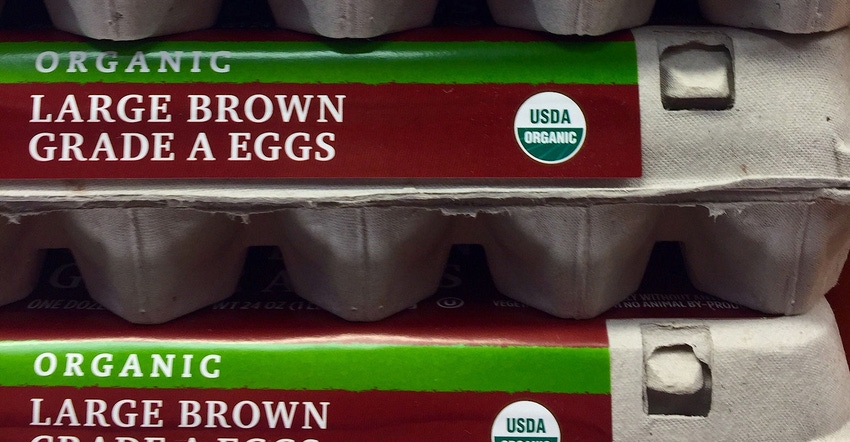California judge rules case challenging withdrawal of organic animal welfare regulations can move forward.

The federal court for the Northern District of California issued a decision concluding that a legal challenge to the U.S. Department of Agriculture's withdrawal of organic animal welfare provisions could proceed.
The Organic Livestock & Poultry Practices (OLPP) final rule established production standards including outdoor access was published on Jan. 19, 2017, and was set to become effective on March 20, 2017. Following the change in presidential administration, however, USDA delayed the effective date three times, before finally withdrawing the final rule a year later.
In March 2018, seven nonprofit organizations, including the Center for Food Safety (CFS), The Humane Society of the United States and the Animal Legal Defense Fund, sued USDA and Agriculture Secretary Sonny Perdue, challenging its decision to withdraw the organic standards for animals on certified organic farms, called the "Organic Livestock and Poultry Practices" rule.
In the withdrawal decision, USDA claimed the rules could not be issued because it lacked authority to regulate practices such as animal space and preventative livestock health care, a “complete reversal of the legal and policy positions USDA has held since the beginning of a federal organic standard, and what organic consumers and farmers expect,” CFS said.
Another complaint by the plaintiffs was USDA’s claim that the regulations would be costly. In the decision, after finding standing for the plaintiffs, the court dismissed two of the claims brought, but gave the plaintiffs leave to amend one of them, having to do with USDA's failure to involve the National Organic Standards Board. Two other claims, regarding USDA's two main rationales for the withdrawal of the economic costs and lacking authority, were unchallenged by the motion and will also go forward.
The court's decision rejected arguments from USDA that the nonprofits did not have legal standing to challenge the withdrawal decision. The court held that the withdrawal of the rule that set organic animal welfare standards injures the organizations' members because it "undermines the organic label" for consumers.
The judge explained because USDA withdrew the OLPP rule, the label “organic” gives them no assurance as to whether the organic eggs and other animal products they purchase are in fact produced in accordance with the appropriate animal welfare standards. “The Withdrawal Rule forces them to spend money investigating which private labels could be used to determine whether the certified USDA organic animal products they consume are in fact produced without the use of harmful practices,” the ruling stated.
"The National Organic Coalition is thrilled to see our legal challenge move forward," said Abby Youngblood, executive director at the National Organic Coalition. "The Organic Livestock and Poultry Practices rule represents more than a decade of work to clarify and improve animal welfare standards in organic and has the support of thousands of stakeholders, including farmers, consumer advocacy groups, and other members of the organic industry. With this decision comes the recognition that USDA has long exercised its authority under OFPA to implement regulations regarding the care of organic livestock."
Peter Brandt, managing attorney for farm animal litigation at the Humane Society of the United States, added, "USDA's attempt to strip improved animal welfare requirements out of the organic standards defies common sense and decency. The agency's callous disregard for animal welfare may also seriously hurt organic farmers when consumers discover they are not getting the humane care they expect from an organic product."
The Organic Trade Assn. (OTA), although not party to the lawsuit, welcomed the decision by the court for the case to proceed. OTA has filed its own lawsuit challenging the withdrawal of the rule.
OTA’s spokeswoman said, “On the issues that were lost in the California case, however, the Organic Trade Association believes our case is different, and will be handled on its own merits. We look forward to working together to undo the administration's refusal to implement the OLPP. "
OTA case is more complex because it challenges the multiple delays of the rule as well as the withdrawal. They have a much more complete attack on the cost benefit analysis USDA did within it’s withdrawal decision. OTA case also has business elements to it because of the harm to organic producers as well as consumers.
About the Author(s)
You May Also Like



.png?width=300&auto=webp&quality=80&disable=upscale)

